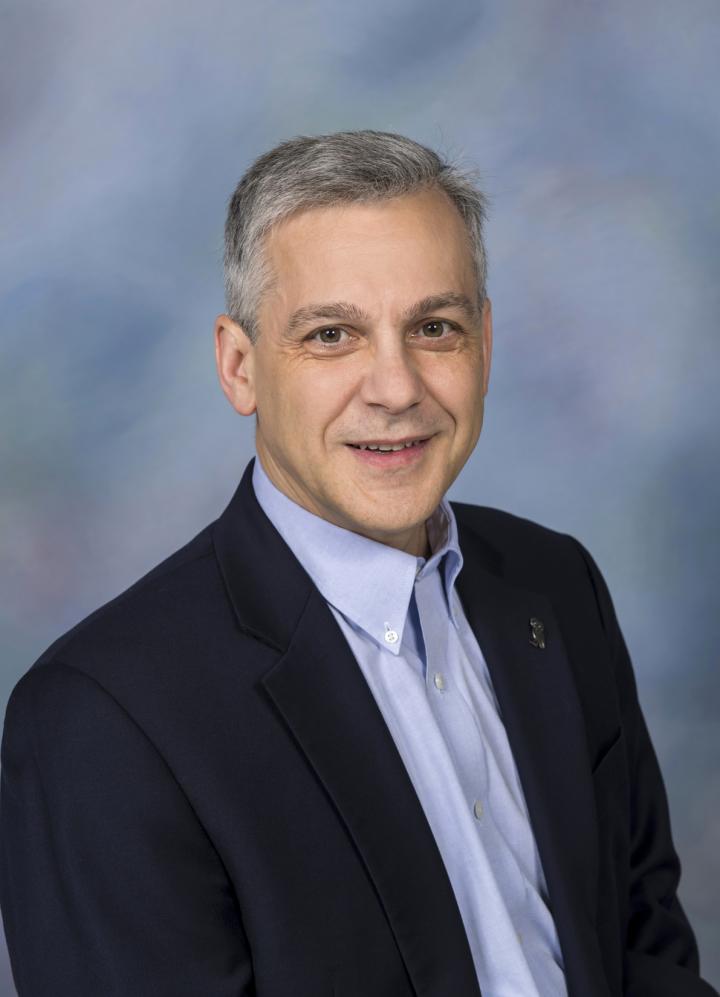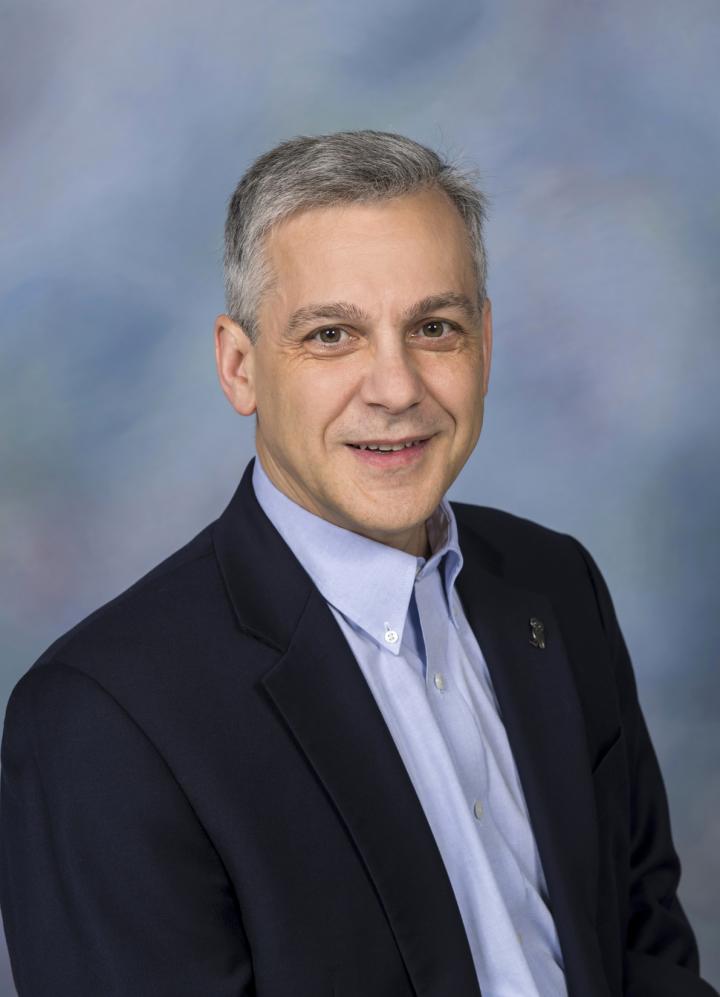
Credit: Tommy LaVergne/Rice University
Bone cancer patients facing difficult pelvic surgeries at the Texas Medical Center could soon benefit from Rice University research that will use personalized computer models to predict surgical outcomes for patients.
The research is being made possible by a $5 million grant by the Cancer Prevention and Research Institute of Texas (CPRIT) to recruit mechanical engineering researcher B.J. Fregly to Rice's Department of Mechanical Engineering.
The grant is one of 10 totaling more than $25 million approved this week by CPRIT in Austin.
Fregly, a Knox T. Millsaps Professor in Mechanical and Aerospace Engineering at the University of Florida, is a classically trained mechanical engineer with more than 30 years of research experience building computer models that predict how a patient will function following different planned surgical or rehabilitation treatments. With motion-capture technology similar to that used by the film industry, Fregly and colleagues build personalized computer models of individual patients that can simulate post-treatment patient function for a wide range of treatment options being considered by the clinician. By performing the simulations in a systematic manner, Fregly's team seeks to identify the optimal surgical or rehabilitation treatment and how the clinician should implement it for the current patient — a process called "personalized medicine."
"My research program has always had a heavy orthopedic, human movement prediction and computational treatment design focus, and developing my CPRIT research plan in collaboration with surgeon Valerae Lewis at MD Anderson (Cancer Center) helped me realize how relevant my research toolbox is to orthopedic oncology," Fregly said. Lewis is chair of the Department of Orthopedic Oncology at MD Anderson.
"I am extremely grateful to CPRIT for giving me the opportunity to take the innovative personalized treatment design methods I have been developing for other orthopedic conditions and apply them to cancer surgeries, where every patient is truly unique and requires a truly unique treatment plan," Fregly said. "I am enthusiastic to explore a broad range of orthopedic oncology applications with Dr. Lewis and her team in the years to come."
Originally from Rochester, N.Y., Fregly earned his bachelor's degree from Princeton University and his doctoral degree from Stanford University before moving to the University of Lyon, France, for postdoctoral studies under a Chateaubriand Fellowship. He also worked at a Silicon Valley software startup for four years before joining the University of Florida in 1999.
In his second year at Florida, Fregly was recognized as Teacher of the Year in his department, and in 2008 he was named Teacher of the Year in Florida's College of Engineering. He has published more than 75 refereed journal articles and won numerous research grants from NASA, the National Science Foundation and the National Institutes of Health (NIH), including an NIH R01 "Knee Grand Challenge" grant in 2010 to collect and make freely available comprehensive human movement data sets that musculoskeletal modeling researchers around the world use to validate their predictions of muscle and joint contact forces in the knee.
Fregly is no stranger to Rice. His wife, Shirley, is a 1988 alumna, and his son, Christopher, just completed his freshman year at Rice. In fact, Fregly's recruitment to Rice began with an August 2016 conversation as he was moving his son into university housing.
"Shirley and I were helping move Christopher into his room at (one of Rice's residential colleges), and he walked in and said, 'I just met the college master (Laura Schaefer), and she said she wants to speak with you,'" Fregly recalled. Schaefer, chair of the Department of Mechanical Engineering, had recognized the senior Fregly's name and wanted to encourage him to apply for a position at Rice.
Fregly said Schaefer also encouraged him to apply for CPRIT funding.
Fregly's CPRIT research will focus on using patient-specific computational walking models to predict which type of pelvic surgery — and how to perform it — will maximize a patient's ability to regain mobility.
Few cancer surgeries today are as invasive or life-changing as those involving the pelvis, the ring-shaped bone that anchors both the spine and hips. Removing key parts of the bone can keep patients off their feet for more than a year, and outcomes are so variable that patients often go into the operating room without a clear idea of what their walking ability will be like after surgery.
"Custom pelvic prostheses have the potential to both maximize walking ability and minimize recovery time, but they are not available clinically because of low reliability," Fregly said. "That's an engineering problem that Rice is in a good position to tackle."
He said his lab will work with Scott Tashman, director of the Biomotion Lab at the University of Texas Health Science Center, to gather patient-specific 3-D imaging, gross body movement and fine bone movement data. Using those data, Fregly's team will create a state-of-the-art computer model for each patient, and those models will provide force and stress predictions that mechanical engineering researcher Fred Higgs, director of the Particle Flow and Tribology Lab at Rice, will use to create custom prostheses with 3-D printing.
"Our hope is to improve the postsurgical functional outcome and recovery time for pelvic sarcoma patients in the Texas Medical Center, regardless of which surgical method a patient receives," Fregly said.
He said the CPRIT project is only possible because of the willingness of Rice and Texas Medical Center experts to collaborate.
"This project could not have happened without a collaborative team," Fregly said. "I'm pulling it together and leading the modelling, but without Valerae Lewis we would have no clinical problem to address and no patients. Without Scott Tashman, we couldn't do pretreatment testing or assess how patients are progressing. And we need Fred Higgs' expertise to create custom implants using additive manufacturing. It really will take all of us to make this project go."
Fregly will join Rice's faculty Aug. 1.
Cancer is a leading cause of death for Texans. CPRIT was approved by state taxpayers in a 2007 ballot initiative to provide $3 billion to support cancer research statewide. To date, CPRIT has awarded $1.8 billion in grants to Texas researchers, institutions and organizations through its academic research, prevention and product development research programs.
###
Related stories from Rice:
Rice awarded grant to recruit Stanford cancer researcher — March 27, 2017
http://news.rice.edu/2017/03/27/rice-awarded-grant-to-recruit-stanford-cancer-researcher/
Rice wins award to recruit cancer researcher — June 6, 2016
http://news.rice.edu/2016/06/06/rice-wins-award-to-recruit-cancer-researcher-2/
Rice recruits cancer researcher from Harvard with CPRIT grant — May 26, 2015
http://news.rice.edu/2015/05/26/rice-recruits-cancer-researcher-from-harvard-with-cprit-grant/
Nanomedicine expert joins Rice faculty — Dec. 15, 2014
http://news.rice.edu/2014/12/15/nanomedicine-expert-joins-rice-faculty/
This release can be found online at news.rice.edu.
Follow Rice News and Media Relations on Twitter @RiceUNews.
Located on a 300-acre forested campus in Houston, Rice University is consistently ranked among the nation's top 20 universities by U.S. News & World Report. Rice has highly respected schools of Architecture, Business, Continuing Studies, Engineering, Humanities, Music, Natural Sciences and Social Sciences and is home to the Baker Institute for Public Policy. With 3,879 undergraduates and 2,861 graduate students, Rice's undergraduate student-to-faculty ratio is 6-to-1. Its residential college system builds close-knit communities and lifelong friendships, just one reason why Rice is ranked No. 1 for happiest students and for lots of race/class interaction by the Princeton Review. Rice is also rated as a best value among private universities by Kiplinger's Personal Finance. To read "What they're saying about Rice," go to http://tinyurl.com/RiceUniversityoverview.
Media Contact
David Ruth
[email protected]
713-348-6327
@RiceUNews
http://news.rice.edu





